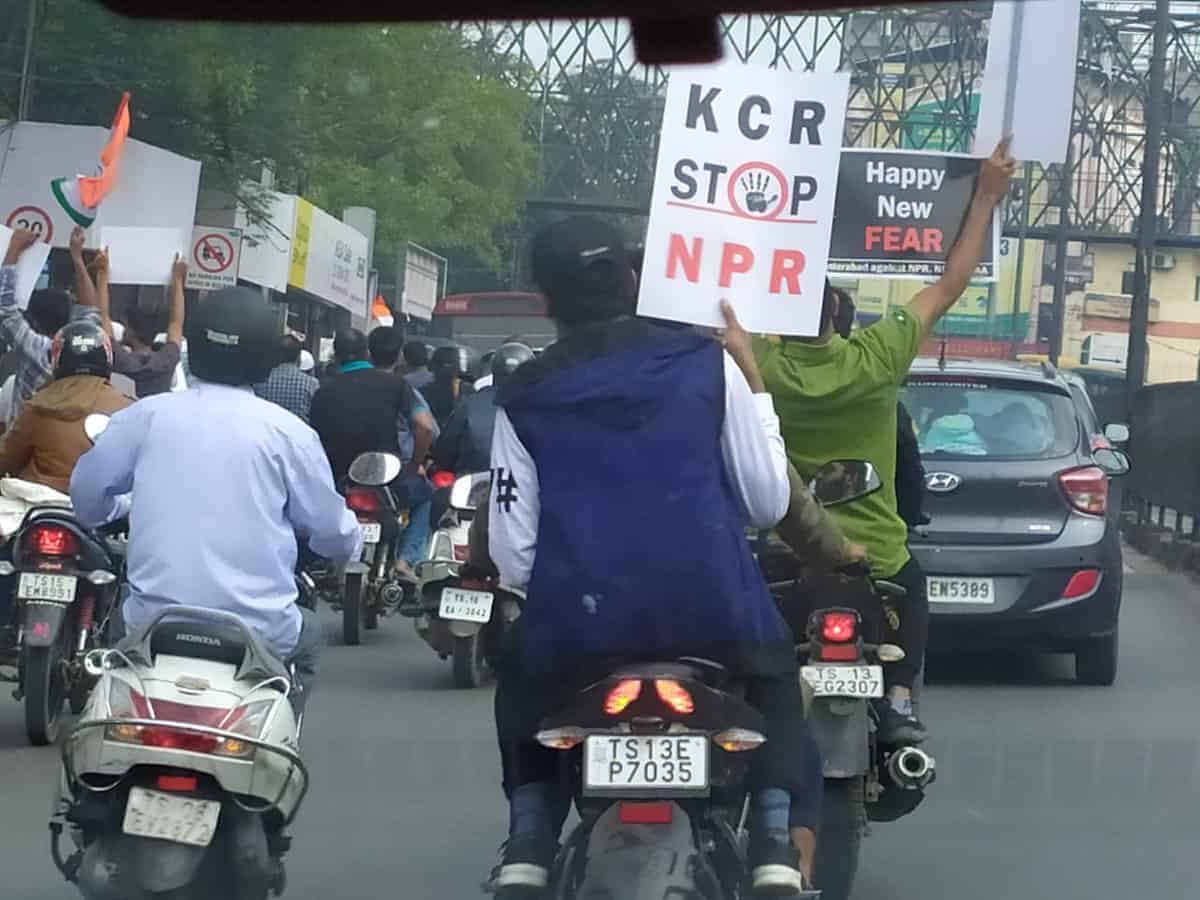SHIVAM VIJ
The National Population Register 2020 wants to know your mother tongue. In 2010, it did not.
The NPR will help the government of India deliver development to India’s poor, or so Union Home Minister Amit Shah has been claiming.
How will knowing the mother tongue of every Indian help Amit Shah deliver the fruits of development? By the way, linguistic data is already collected in the Census. But you see, the Census can only tell you the languages spoken in a village, a tehsil, a block, a city, and maybe a neighbourhood. It doesn’t reveal what languages Ram Kumar speaks, what is his neighbour Abdul Khan’s mother tongue, or that of Abdul’s friend Joseph D’Mello’s.
The development link
When the Census Act was passed in 1948, the people running India had respect for basic human decencies as privacy. But now, Amit Shah demands to know the mother tongue of every Indian, at the click of a button, on a mobile app.
Development, he says
We don’t know what development projects need the Narendra Modi government to link our mother tongues to our Aadhaar number, driving license number, passport number, voter ID number and who knows what else. Don’t worry, your PAN number is already linked to your Aadhaar, so that’s not needed in NPR.
Is Amit Shah planning to study the demand of MGNREGS work among Telugu-speaking people who don’t vote in elections? Is the Modi government going to give extra money in the PM-Kisan dole to Meitei-speaking farmers who don’t have a passport yet? Is the government going to start mother-tongue courses for linguistic minorities? There’s a Bengali who lives next to my house. He’s the only Bengali in the colony. Is Amit Shah planning to send a Bengali language teacher for the family? Or a Bengali-speaking yoga teacher perhaps?
The language link
None of this makes sense. Why on earth would Amit Shah need individual level and household level linguistic data for development when he already has village-level linguistic data and his government can still not create jobs or prevent banks from collapsing.
It becomes a little worrying when you recall Amit Shah saying a while back that he wants Hindi to replace English as India’s “link language”. It gets even more worrying if you realise India has no data privacy laws and the one proposed by the government is actually a law to legalise unbridled government surveillance.
It is an insult to the intelligence of the people of India that the government needs to know our mother tongue to deliver development. But if you add the absence of data protection, you begin to see what’s happening.
The privacy link
Think of the potential of linguistic data in targeting propaganda. In any case, when the Modi government says development it means propaganda. The NPR also collects phone numbers. You could be a Tamilian living in Haryana, but don’t worry, Mann Ki Baat SMS updates will reach you in Tamil after you’ve signed away your mother tongue to the NPR.
Somehow, the BJP might also come to know you are a Tamilian living in Haryana. You might then be added to a WhatsApp group that will give you an endless stream of Islamophobia and fake news in Tamil.
You might be a Bengali living in Bengaluru. With a few clicks, the government could make a list of all Bengali speakers in Bengaluru and ask them to prove their citizenship with the right documents within 14 working days. After all, Aadhaar and Passport aren’t proof of citizenship, as government officials have already pointed out.
Not many are able to see what a disaster the NPR is. One day, when the linguistic data from NPR might be used for delimitation, the opposition parties will know why they should have opposed NPR more strongly.
Not many are able to see what a disaster the NPR is. One day, when the linguistic data from NPR might be used for delimitation, the opposition parties will know why they should have opposed NPR more strongly.
And it’s not just linguistic data. There is any number of micro-targeting possibilities in the NPR, helping the BJP in its election game. Using NPR data, they could target people of different profiles differently. And since we have no data protection law, we won’t know how, when and where the data is being misused and our privacy violated.

